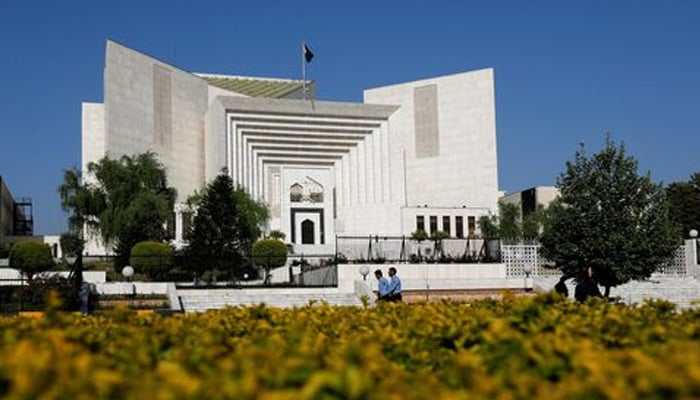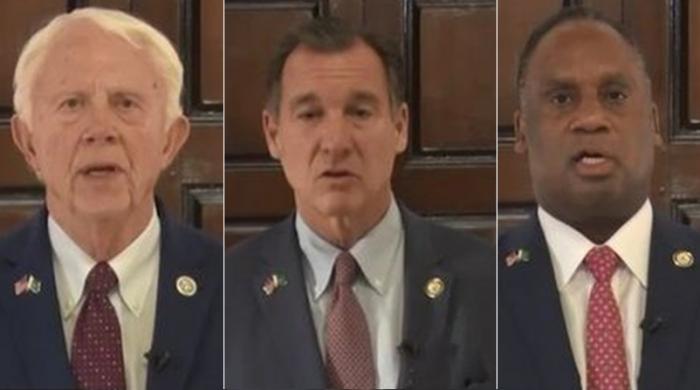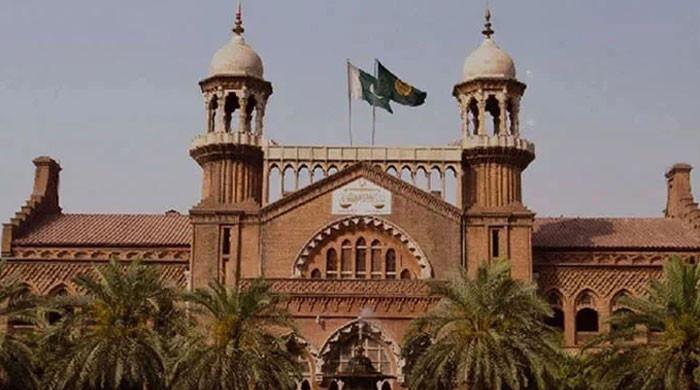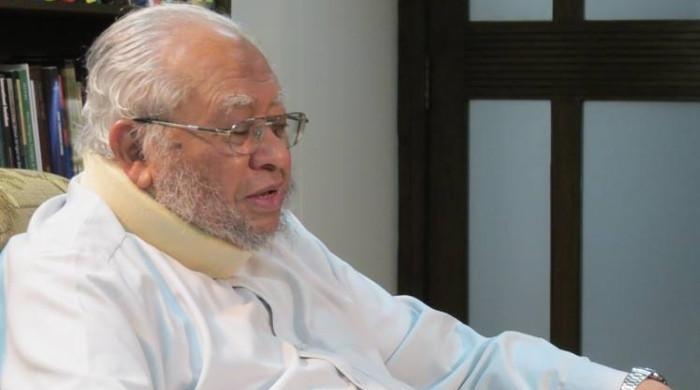Govt to challenge Justice Shah's order forming full bench on committees' powers
Constitutional bench orders linking record of Additional Registrar Nazar Abbas contempt case with regulatory duty case
January 28, 2025

- Bench withdraws Justice Shah's Jan 13 and 16 orders.
- Justice Ayesha recuses herself from hearing the case.
- Hearing on customs regulatory duty adjourned indefinitely.
ISLAMABAD: The federal government has decided to challenge the Supreme Court's order for forming a full-court bench to deliberate on the powers of committees assigning cases to benches, the Attorney General (AG) Usman Awan informed the apex court's constitutional bench on Tuesday.
The AG argued that Justice Mansoor Ali Shah exceeded his authority by taking suo motu notice, stating that he was not authorised to do so.
"The federal government will challenge yesterday's unconstitutional order," the AG informed the Supreme Court's constitutional bench during the hearing of a case concerning Customs regulatory duty.
A two-member bench, comprising Justice Shah and Justice Aqeel Ahmed Abbasi, withdrew the contempt notice against Additional Registrar (Judicial) Nazar Abbas and forwarded the file to Chief Justice of Pakistan (CJP) Yahya Afridi for the constitution of a full court.
During today's hearing by a five-member bench — Justice Jamal Khan Mandokhail, Justice Naeem Afghan, Justice Muhammad Ali Mazhar, Justice Aminuddin Khan, and Justice Hasan Azhar Rizvi —, AG Awan stated that a decision had been made to file review petitions on Justice Shah's January 13 and 16 orders.
At this, Justice Mazhar remarked that Justice Shah had directed the Customs regulatory duty case to be fixed before his bench.
"Can we proceed [with the review petitions] in the presence of this order?" he asked.
Justice Aminuddin, during the hearing, inquired why the proceedings were deferred until today (January 28) when they had been adjourned to January 27 after the January 13 session.
Responding to this, Justice Mandokhail explained that one of the judges from the three-member constitutional bench had recused themselves from the matter.
At this, Justice Rizvi questioned whether the judge in question had the authority to order a case to be placed before a specific bench or to reconstitute the bench. Meanwhile, Justice Afghan remarked that Barrister Salahuddin was responsible for the entire dispute.
Justice Mazhar added that, according to a court order, Barrister Salahuddin had insisted that the regular bench could hear the case.
"Don’t you have confidence in us?" Justice Mandokhail asked, adding that the lawyer should inform him if he believed he was ineligible or did not understand the law.
He further noted that if there was an issue with “the new system,” it was a separate matter altogether.
Justice Aminuddin highlighted a court order from February 2021, issued during former CJP Umar Ata Bandial's tenure, as relevant to the case. Justice Mazhar then remarked that the January 16 order stated the case should be “considered heard,” noting that a case is either “heard” or “not heard.”
“Where did this term — ‘the case should be considered heard’ — come from?” he asked.
At this point, the AG presented two orders from January 12: one setting the next hearing for January 27, and the other for January 16. He claimed the date had been altered in the order.
In response, Justice Mazhar questioned how it could be declared that the case was heard without issuing a Rule 27A notice to the AG.
Justice Mandokhail asked whether the bench had issued a contempt of court notice to the regular bench, clarifying, "We only heard the case."
Justice Afghan then pointed out that yesterday’s order instructed that the case be assigned to the same bench and even specified the names of the judges. He questioned whether the judicial order, right or wrong, allowed them to hear the case.
Expressing disappointment, Justice Mandokhail called the situation unfortunate and said it should not have happened.
Justice Mazhar asked which bench should hear the case, questioning whether it should be referred to like-minded judges or remain with the current bench. He criticised the impression being created by lawyers, stating that the judges’ dignity must be respected.
Frustrated, he sarcastically suggested delaying the case for 20 years.
Barrister Salahuddin responded by accusing the judges of challenging his credibility. “I will respond strongly,” he asserted.
To calm Salahuddin, Justice Mandokhail advised him not to get emotional, assuring him that the judges respected his sentiments.
“The reputation is already tarnished anyway,” Justice Mandokhail remarked with a smile.
At this point, the constitutional bench withdrew Justice Shah's January 13 and 16 orders. These orders had included notices for interpreting Article 191A of the Constitution. The bench also directed that the record of the Nazar Abbas contempt case be linked with the customs duty case and adjourned the hearing indefinitely.
Justice Ayesha’s Recusal
Meanwhile, Justice Ayesha A Malik recused herself from hearing the case on Monday. In her written response, she explained that she was part of the bench that issued the January 16 order regarding the fixing of the cases concerned.
Stressing that judicial orders must be respected and not disregarded through administrative actions, Justice Ayesha remarked that the former could not be undone by the latter, as judicial orders are "authoritative pronouncements of the court, representing its authority and affirming judicial independence."
"If there is a disagreement with the Court’s order, it must be addressed through judicial proceedings. Allowing an administrative order—especially one from within the Court—to negate judicial directives undermines the sanctity of judicial authority and the independence of the judiciary," she wrote.












